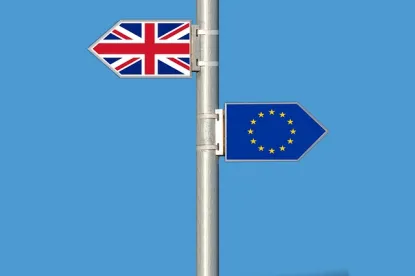The UK Prime Minister Theresa May has delivered her highly anticipated speech in the historic Italian city of Florence.
How far did it move things on?
Truth be told, there was little new in there, and the decision to deliver the speech in Italy rather than London or Brussels remains unclear. Take, for example, Ireland, which along with the issue of EU citizens’ rights and money is a key issue for the EU27. The Prime Minister said:
“The UK government, the Irish government and the EU as a whole have been clear that through the process of our withdrawal we will protect progress made in Northern Ireland over recent years – and the lives and livelihoods that depend on this progress. As part of this, we and the EU have committed to protecting the Belfast Agreement and the Common Travel Area and, looking ahead, we have both stated explicitly that we will not accept any physical infrastructure at the border. We owe it to the people of Northern Ireland – and indeed to everyone on the island of Ireland – to see through these commitments”
So, a statement that Northern Ireland and “the island of Ireland” (presumably not significant that this has changed from “Republic of Ireland” in the Lancaster House speech earlier this year) is an important and difficult case, and that there should not be a hard border, but no detail on how to resolve that outside the customs union and single market. Previous UK government papers have been unconvincing.
Nothing significantly new on citizens’ rights either. There was confirmation that free movement will, in effect, continue during an approximate two-year implementation period subject to some sort of registration process for new arrivals. The rights of citizens arising before 30 March 2019 are intended to be enforced through the UK, rather than the European, courts. However, the Prime Minister did say “I want the UK courts to be able to take into account the judgments of the European Court of Justice with a view to ensuring consistent interpretation”. What is meant by “take into account”, and the mechanism by which this taking into account is to work, remains unclear. Given the desire on the part of the EU27 to have these rights protected by the European Court, there is likely to be the basis of a discussion, but not immediate agreement.
On money, no specific figure was mentioned (the rumoured 20bn Euro figure was conspicuously absent) but the Prime Minister said: “I do not want our partners to fear that they will need to pay more or receive less over the remainder of the current budget plan as a result of our decision to leave. The UK will honour commitments we have made during the period of our membership.”
This on its own is unlikely to satisfy the EU27 completely, but the UK’s position is certainly not that the EU should “go whistle” (if it ever was).
More broadly the Prime Minister confirmed that while the UK would leave the EU on 29 March 2019, it would then move into a transition period (although the government still calls it an implementation period) of “around two years” that sounds a lot like full EU membership. It does not appear that the intention is that the UK will remain a member, and indeed the Prime Minister explicitly said that it would not. But the suggestion is that it will amount to synthetic membership, with free movement, access to the single market and to the customs union. The detail on how this would work is not clear, and if the UK is then a third country, as it appears to be, then there are a number of hurdles not only for the UK to reach a legal agreement with the EU, but to determine its legal relationships are with other countries. Ironically, the UK may find itself with a clearer and more certain relationship with the EU between 2019 and 2021 than with those non-EU countries. My colleague in Frankfurt Jens Rinze will be blogging separately about this and other issues, from the perspective of the EU.
Although in answer to a question the Prime Minister confirmed that “no deal” was still on the table, there was a strong suggestion that the UK does not want a no-deal outcome. I would be so bold as to say that faced with the choice of no deal or formally remaining in the EU in March 2019, the Prime Minister would choose the latter. And then resign.
There had been some discussion earlier in the week about whether the UK would go for a Norwegian-style model, a Swiss-style model or a Canadian-style model. The Prime Minister rejected all of these, but did not provide much detail on what differences would be, except they would be imaginative and creative.
Michel Barnier, the European Chief Negotiator for Brexit promptly delivered his response.
Barnier more than anyone in the EU27, wants to see a deal. His response acknowledged the “constructive spirit” of the Prime Minister’s speech and that he looked forward to “the United Kingdom’s negotiators explaining the concrete implications of Prime Minister Theresa May’s speech”. He was clear that the UK would become a third country on 30 March 2019. He was open to the idea of the UK remaining (and paying to remain) in the Single Market but expressed disappointment in relation to the lack of detail on how the Irish position could be resolved. Barnier is in the driving seat at the moment, and he knows it.
Next week will be key in determining whether sufficient progress has been made to move on to trade talks. My initial take is that, in the speech at least, the UK government has provided insufficient detail, and I think there is a 50% chance that the talks collapse in the coming months unless David Davis has considerably more detail to share with Michel Barnier. In which case, the Prime Minister will need to move further towards the EU’s position, or we face a realistic prospect of a cliff-edge departure.
If we find ourselves in the position, as the Prime Minister hopes, that the terms of the transition will be agreed sooner rather than later, then this will provide some reassurance to business (although may disappoint those businesses that would prefer that we fully leave the EU sooner rather than later). But business should not assume, regardless of the transition terms, that the legal position will be identical on 30 March 2019.




 />i
/>i

